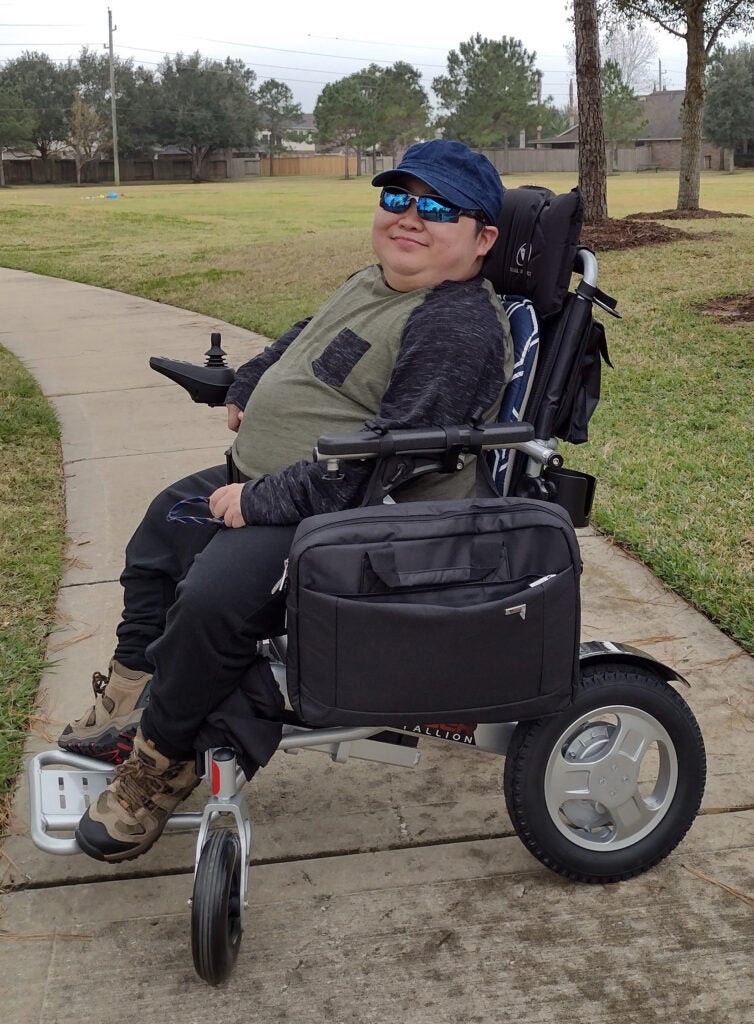
Felix Wu was four when he was diagnosed with Duchenne muscular dystrophy. Throughout his school career, he saw how Duchenne affected him, and how inclusive (or not) people could be.
“People with disabilities have to think about so much more when we plan anything, just in terms of access,” Felix said. “At school, for example, it was sometimes tricky to get teachers to let me leave class early, even though I required the additional time to get to and from classes.”
But that didn’t hinder him, and Felix placed 7th out of around 1,000 graduating students in his high school. What it did do, however, is give him a purpose.
Nowadays, Felix is pursuing his PhD and teaching at Rice University. As a teacher, he has been able to cater the job to his needs, for example opting for day teaching slots as his condition might make him tired in the evening. Felix does, however, acknowledge that his teaching style had to be adapted to his disability.
“Able-bodied teachers might be able to go around to the students and see if they need help, but I can’t do that. So it’s a matter of them coming to my desk if they need help, which may not work for more shy students,” he says. Luckily, his office hours are carried over Zoom, where even the shy students can reach out for a one to one meeting.
Felix’s PhD focuses on psychology in the workplace or industrial-organizational (I-O) psychology, and more specifically on attitudes toward disability in the workplace. That’s why he chose Rice University – it is ranked #1 in the U.S. for I-O psychology by U.S. News and World Report.
Throughout his studies, he has discovered that many employers in the U.S. do not treat people with disabilities equally. Felix has discovered there are many barriers to disability employment, including “subtly” including discriminative language in job descriptions.
“If you look at a programmer, do you really need them to be able to drive? No, you need them to know how to code. It’s a simple fix to make the job role more inclusive,” he says.
Felix is also worried about how AI might integrate those unconscious biases and perpetuate them, which is why the issue should be tackled at its root. Once he has finished his degree, he would like to continue in academia and potentially become a faculty member.
He is also passionate about the issue that discriminative language can trickle down to the social life of people with Duchenne.
“Social exclusion is also something that commonly affects the Duchenne/disability community. Social interaction is often something that needs to be planned in advance with those with disabilities needs in mind, so it needs to be a conscious decision to include us,” Felix explains.
He encourages people living with Duchenne to get themselves out there (both online and in person), and meeting/chatting to as many people as possible.
“Not everyone has to like you, but it’s important to find the ones that do and continue to make the effort and cherish those connections,” he says.
To connect with Felix, find him on X at @IOFelixWu and check out his website, felixywu.weebly.com.